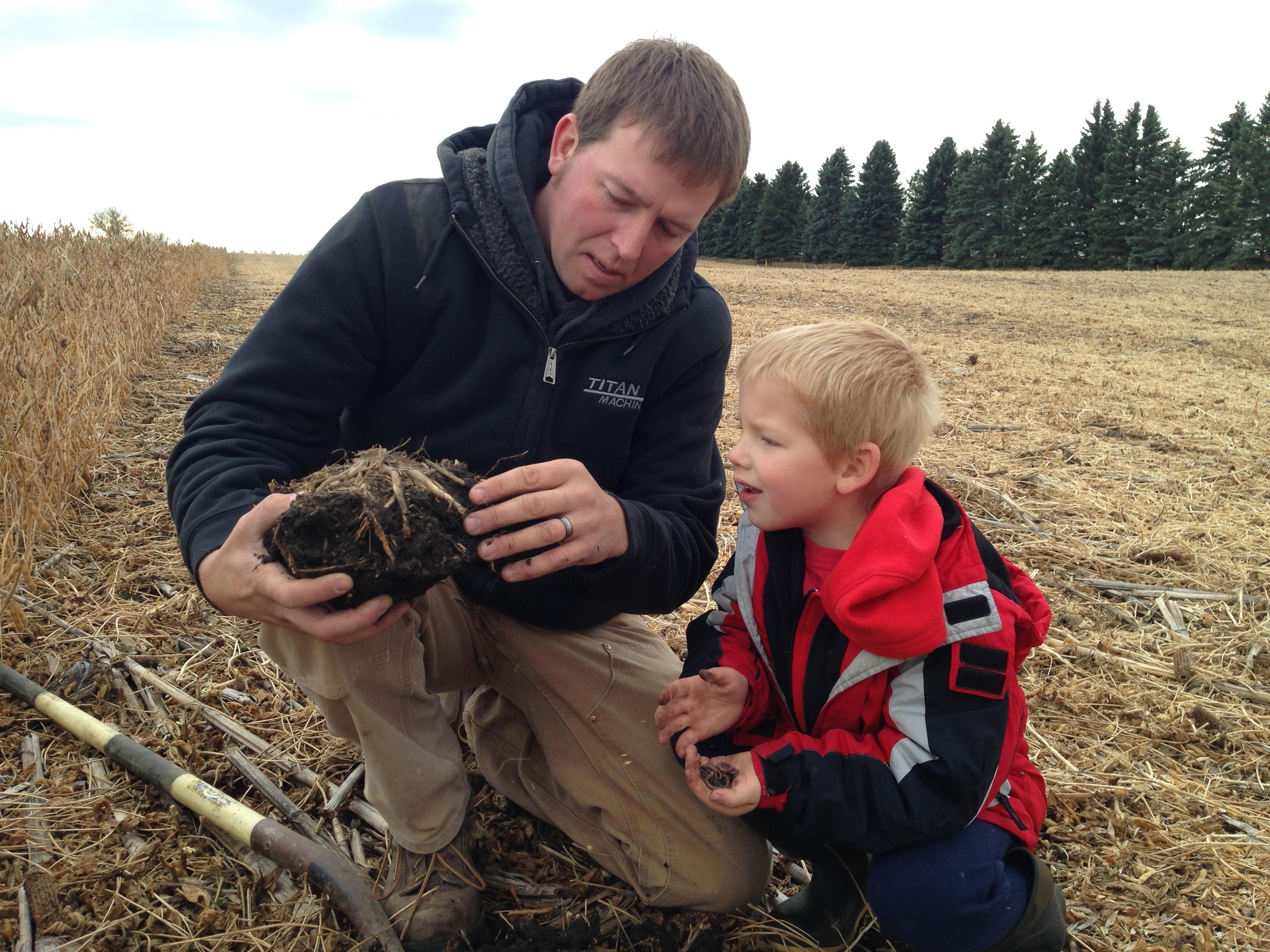 By mimicking nature with a diverse, regenerative, no-till cropping system, the Wilsons are building soil structure and their farm’s resilience to survive changes in weather and commodity markets.
By mimicking nature with a diverse, regenerative, no-till cropping system, the Wilsons are building soil structure and their farm’s resilience to survive changes in weather and commodity markets.
Better soil health means fewer costly inputs are needed to grow crops. For the Wilsons, it also means their customers have a product grown with fewer chemicals, fertilizers and fuel. All of this is gained while maintaining yields and protecting soils that were previously susceptible to wind and water erosion.
Cover crops are tailored for a specific purpose and site. Winter rye is grown to address the soil’s salt content, a serious resource concern in North Dakota’s glaciated region. Rye also helps cycle and scavenge nutrients, keeping them from leaching away and becoming a pollutant. Other cover crops help break up compacted soil. This allows excessive rain to infiltrate the soil rather than running off. The stored moisture reduces stress on crops during times of drought.
Efforts to seed cover crops by aircraft and modified planters have been noticed and replicated by neighbors. The Wilsons’ willingness to collaborate and share what conservation can do for the land has had a positive ripple effect across multiple states. Their long history of working with the Stutsman County Soil Conservation District, includes holding public tours on conservation practices and cropping systems.
Their public outreach has extended to constructing a Heritage Room in their home. Complete with professional grade audio/video equipment, the space allows them to show visitors what happens on their farm throughout the year, and not just on the day of their visit. Business and political leaders, scientists and journalists from around the globe have visited their farm to learn the value of what they are doing.
For more than 20 years, the Wilsons have been outstanding spokespersons and advocates for conservation agriculture. Jeremy was selected as a “Soil Health Champion” by the National Soil Conservation Association of Conservation Districts.
The Wilsons donate three acres of sweet corn annually to the Great Plains Food Bank. That equals more than 27,600 meals of fresh produce to those in need. It’s another example of how through conservation practices and stewardship, the Wilsons have provided benefits that go far beyond their farm gate.
Sarah Wilson says every farm is as unique as a thumb print. As the fourth generation of Wilsons to farm this piece of North Dakota, they are certainly making their mark.
 Sign In
Sign In
 Sign In
Sign In
